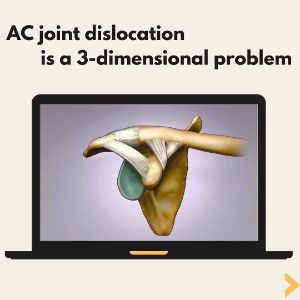Osteonecrosis is a condition in which death of a section of bone occurs because of lack of blood supply to it. It is one of the most common causes of knee pain in older women. Women over the age of 60 years of age are commonly affected, three times more often than men.
Osteonecrosis of the knee is most commonly seen in the femoral condyle, usually on the inner side of the knee (the medial femoral condyle). However, the condition can also occur on the outside of the knee (the lateral femoral condyle) or on top of the shin bone (the tibial joint surface), known as the tibial plateau.
The exact cause of the osteonecrosis of the knee is unknown. However one of the theories suggests that a stress fracture or trauma results in altered blood supply to the bone. Another theory says that fluid buildup within the bone increases the pressure on the blood vessels resulting in decreased circulation. If the condition is not diagnosed and treated early, it can result in severe osteoarthritis. Certain conditions and treatments that are associated with osteonecrosis of the knee are obesity, sickle cell anemia, lupus, kidney transplants, and steroid therapy. Steroid-induced osteonecrosis affects multiple joints and can be seen in younger patient groups.
Osteonecrosis in the knee results in sudden onset of pain inside the knee that is activated with a specific activity or minor injury. The pain worsens with activity and at night. Osteonecrosis may also cause swelling of the knee and sensitivity to touch and pressure, and can result in limited motion due to pain and swelling.
There are four stages of development of osteonecrosis of the knee which can be distinguished by symptoms and X-rays.
- Stage I: The symptoms are most intense in the earliest stage, and may subside in 6 to 8 weeks. In this stage, the X-rays are normal; a positive bone scan may be required to make the diagnosis. Treatment for Stage I disease is non-surgical, focusing on pain relief and protected weight-bearing.
- Stage II: This stage follows in a couple of months and the X-rays will show flattened edges of the once rounded thighbones. An MRI, CT, or bone scan may be utilized to diagnose the condition.
- Stage III: At this stage the condition becomes clearly visible on X-rays and no other diagnostic tests are required. At this point the bone, itself, begins to decay away, and cartilage covering the bones loosens from other segments of the leg. Surgical treatments are considered at this stage.
- Stage IV: In this stage, the bone collapses, joint space narrows, bone spurs form, and the articular cartilage is destroyed. The only treatment at this point is joint replacement surgery.
Treatment
In the early stage of the disease, non-surgical treatment options that include anti-inflammatory medications, braces, strengthening exercises for thigh muscles, and activity modification may be needed to reduce the knee pain.
Surgical treatment is considered in advanced stages where more than half of the bone surface is affected. Surgical treatment options include:
- Arthroscopic debridement or cleansing of the joint
- Drilling the area of osteonecrosis of the knee to decrease pressure on the bone surface
- Procedures to lessen the weight from the affected area
- Uni-compartmental or total knee replacement
Your doctor will discuss all the surgical options and may recommend the one appropriate for you. Contact our practice today to schedule a consultation with Dr. Struhl.




